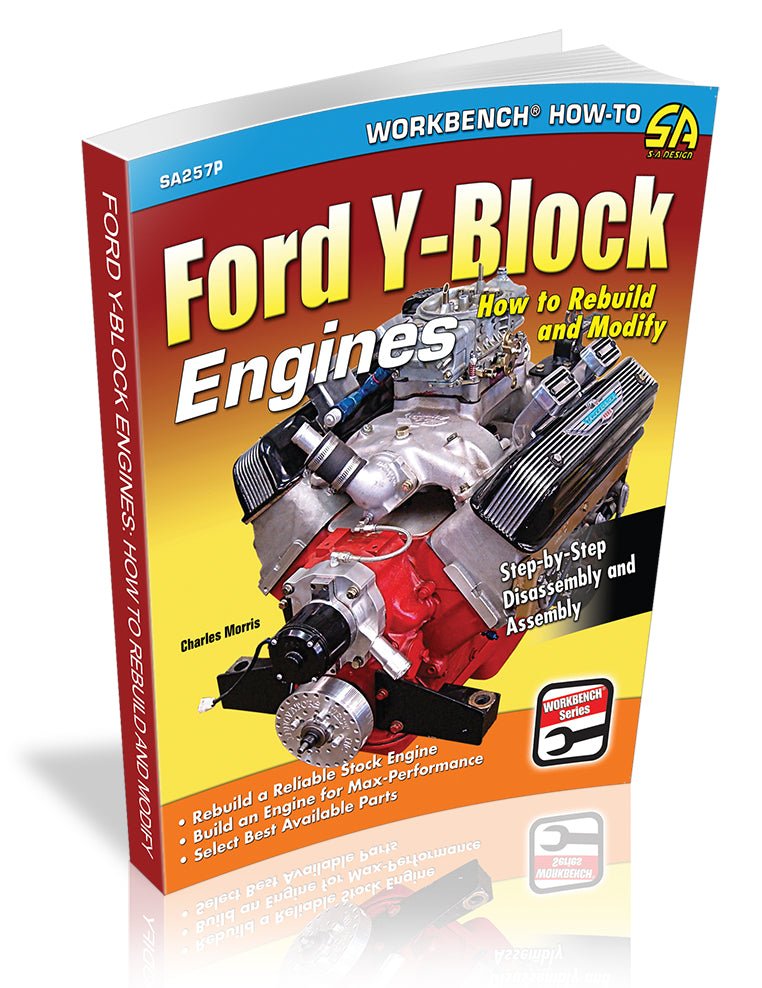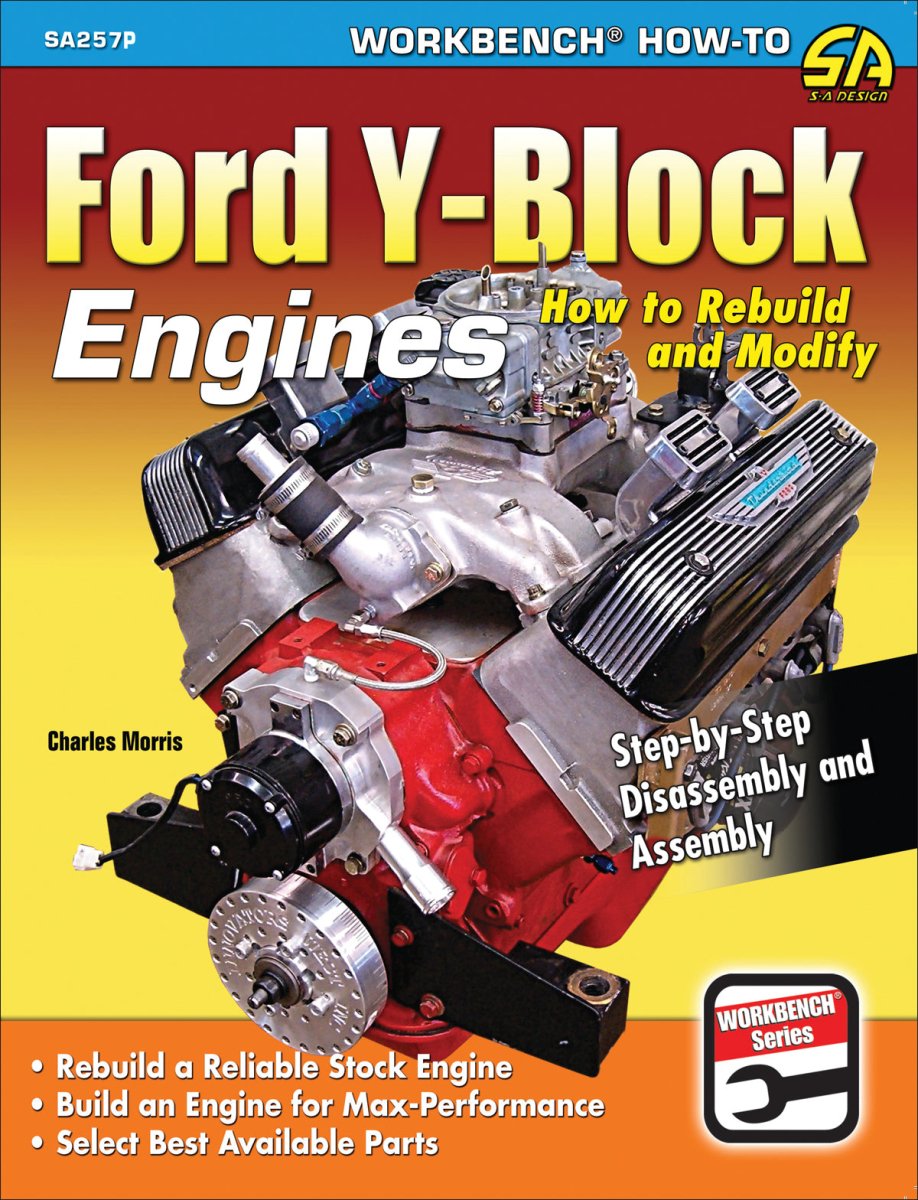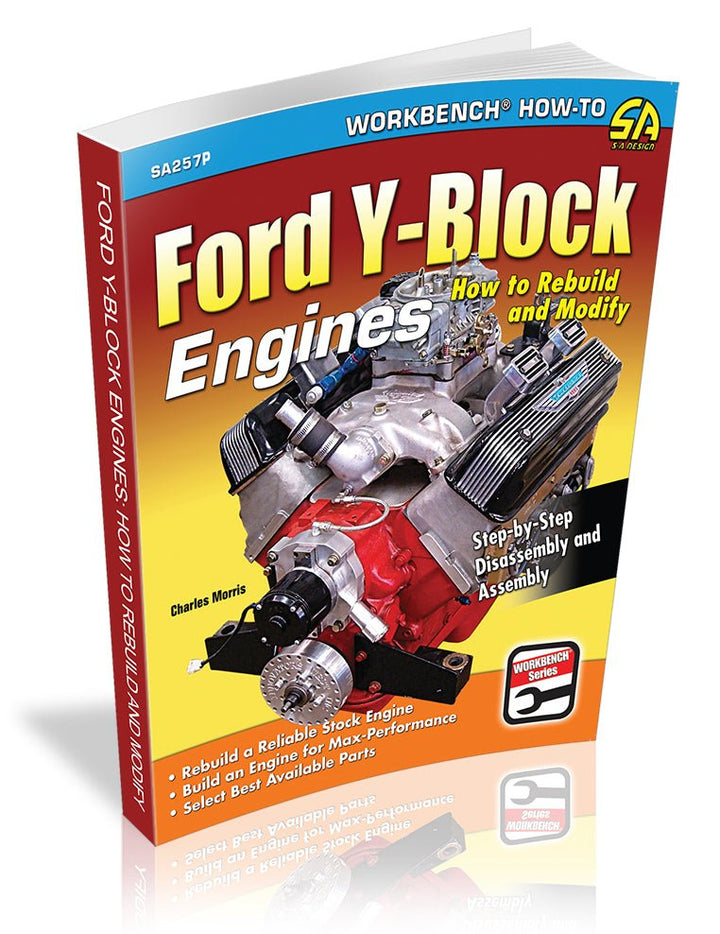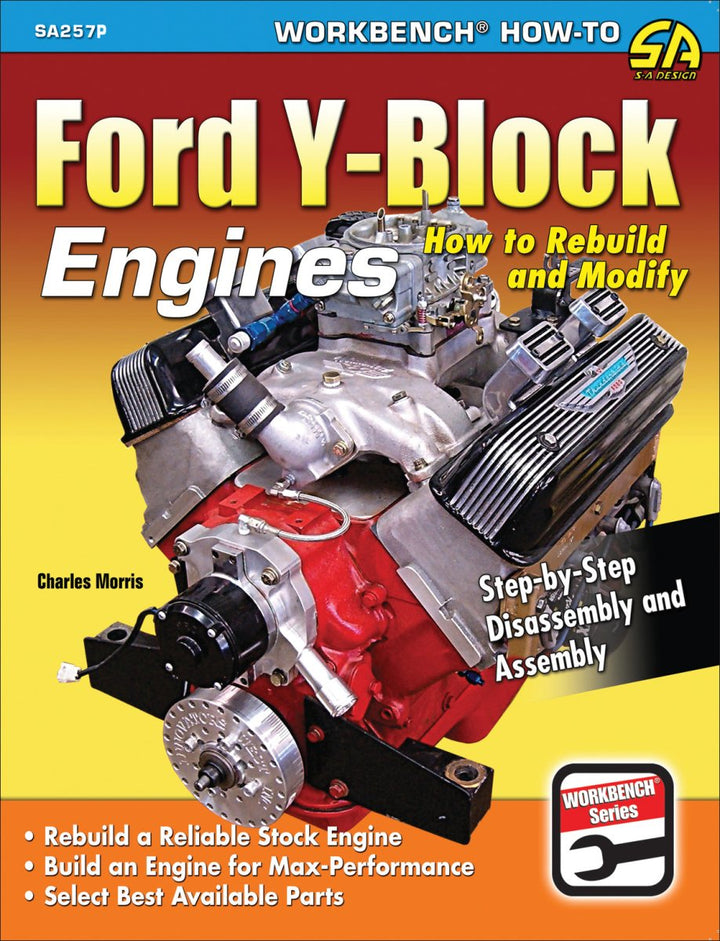As Ford cars grew in both size and weight after WWII, the need for a more powerful and robust engine than the aging Flathead was becoming apparent. The successor of the Flathead engine, the Ford Y-block V-8 engine delivered far better performance and it didn't have the inherent oiling problems of the Flathead. This engine featured deep skirt block design, and its layout resembles a "Y," hence the Y-block name. Manufactured displacements of 239, 256, 272, 292, and 312 cubic inches, this stout engine grew in displacement over the years to meet demands for more power. It powered a variety of Ford trucks and cars from 1952 to 1964, including the Thunderbird, Edsel, and the famous 53-56 pickups.
The Ford Y-block has been largely ignored for years, but now the engine is enjoying a renaissance. With the renewed interest, many new high-performance parts are on the market. In this comprehensive rebuild and high-performance build-up guide, a step-by-step rebuild of two stock engines is provided, complete with explanatory text and captions as well as full-color photos. During the rebuild process, you learn the unique features of this engine series and how to build a strong and reliable engine. In addition, author Charles Morris profiles the building a modified supercharged 292 engine that uses the latest performance parts and technology developed specifically for this engine series. You are shown how to machine and prep the block, refurbish the cylinder heads, and select the optimal rotating assembly for a particular horsepower level.
The last book published on Y-Blocks was more than 20 years ago, but there has not been an authoritative step-by-step engine rebuild and high-performance book until now. The enthusiasts have been clamoring for information and of course owners will find invaluable coverage of the new parts, machining process, and assembly techniques. If you're a Y-block enthusiast, you will have to have this book.
Acknowledgments
Introduction
What is a Workbench® Book?
Chapter 1:
Engine Evaluation
High Mileage
Excessive Oil Consumption
Low Oil Pressure
Decrease in Performance
Noises
Diagnostic Tools and Techniques
Spark Plug Inspection
Ignition Timing Check
Vacuum Test
Compression Check
Leak-Down test
Cooling System Pressure Test
Chapter 2:
Pulling the Engine
Hood
Battery
Fluids
Wiring
Distributor and Ignition
Belts
Lines and Hoses
Hoist and Lift Brackets
Driveshaft
Transmission
Engine Stand
Chapter 3:
Preparing to Rebuild an Engine
Facilities
Safety is Crucial
Organization and Planning
Rationale for Rebuilding
Tools and Equipment
Machine Shop Services
Chapter 4:
Engine Disassembly
Valvetrain Disassembly
Camshaft Removal
Cylinder Head Disassembly
Block Disassembly
Chapter 5:
Inspection and Cleaning
Professional Inspection
Rocker Arm Assemblies
Camshaft and Lifters
Cylinder Heads
Cylinder Block
Pistons and Connecting Rods
Crankshaft and Vibration Dampener
Chapter 6:
Machining and Parts Selection
Parts Sources
Connecting Rods
Rotating Assembly
Cylinder Block
Cylinder Heads
Cylinder Head Resurfacing
Valve Job
Cylinder Head Assembly
Piston and Connecting Rod Installation
Chapter 7:
Assembly
Safety and Cleanliness
Specialized Tools and Products
Bottom End Assembly
Top End Installation
Chapter 8:
High-Performance Y-Block Engine Build
Racing Engines
Chapter 9:
Engine Installation, Start-Up and Break-In
Installation
Priming the Engine
Distributor Installation
Priming the Fuel System
Break-In
Epilogue
Appendix
Cylinder Numbering and Firing Order
General Engine Specifications
Torque Specifications
Preliminary Valve Lash Adjustment
Firing Order
Cylinder Order
Cylinder Head Bolt-Tightening Sequence
Cam Timing
Dampener Timing Settings
Source Guide





